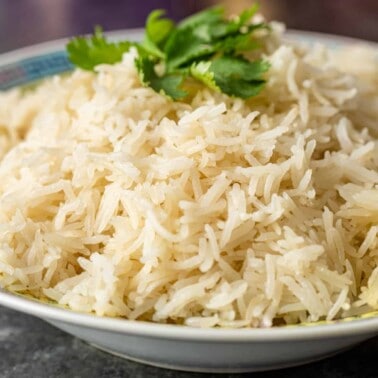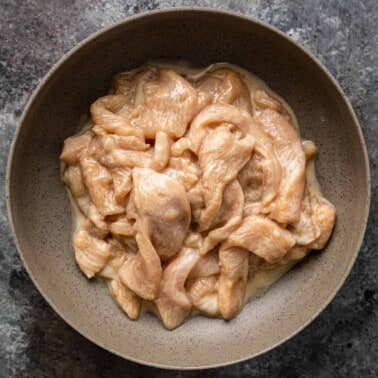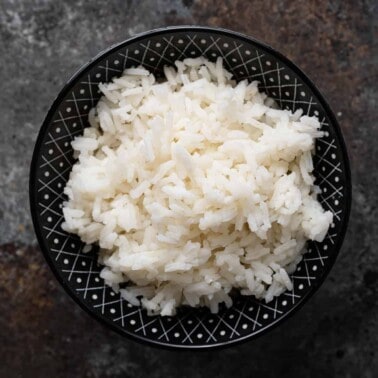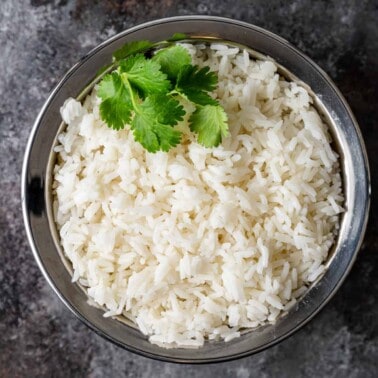What is Kosher Salt?
Kosher salt is well-suited for a variety of culinary applications, from seasoning meat to enhancing the flavor of vegetables. Salt in general has been enhancing food by amplifying its natural flavors since the first time someone stumbled upon it and the food they were going to eat. After that, it’s uses for flavoring and preserving have been invaluable.
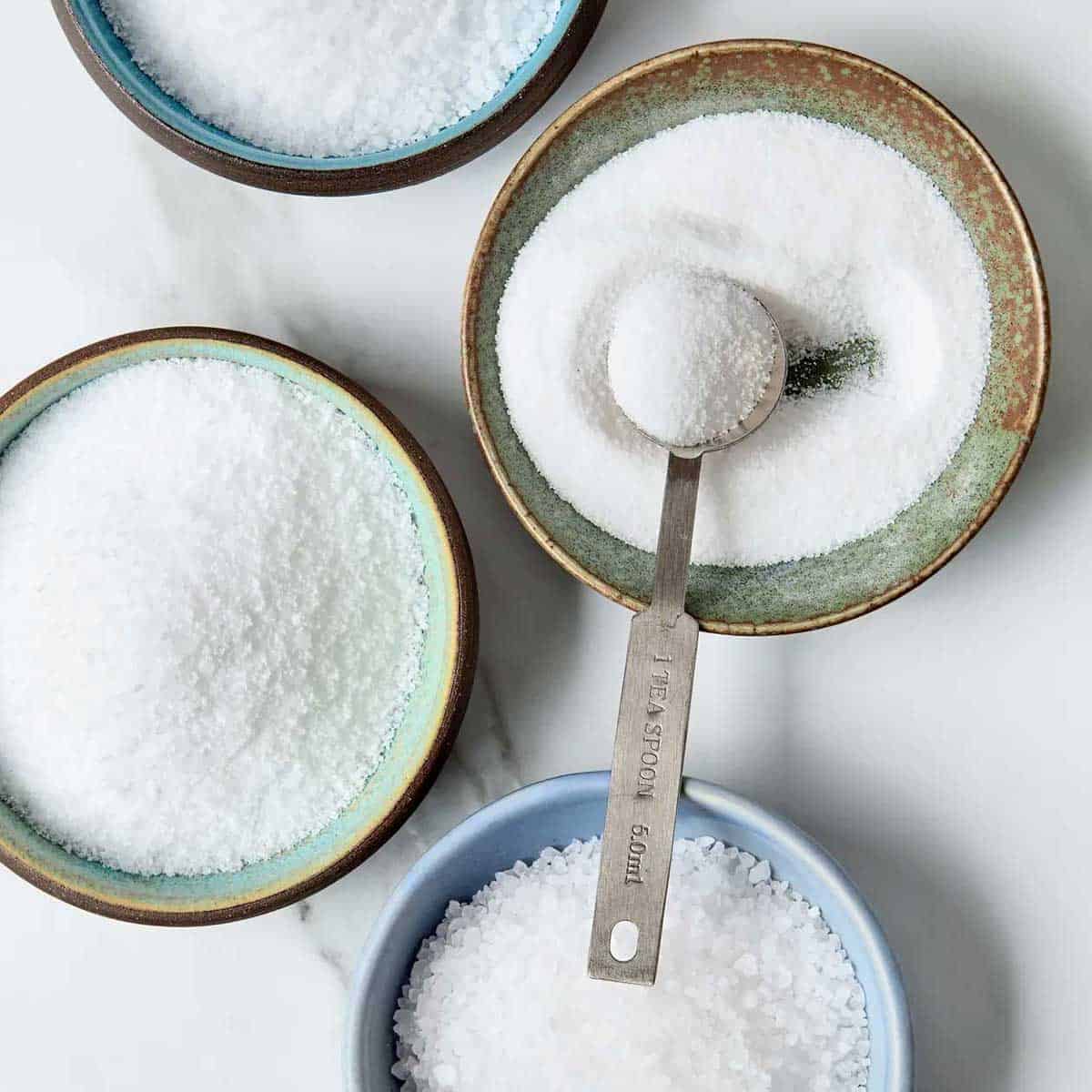
Photo Credit: Epicurious, Travis Rainy
Kosher Salt vs Table Salt vs Sea Salt
In the realm of culinary adventures, the diversity of salts available today can be as intriguing as the variety of dishes they enhance.
Kosher salt, table salt, and sea salt are three popular options that can significantly influence the taste and texture of your creations.
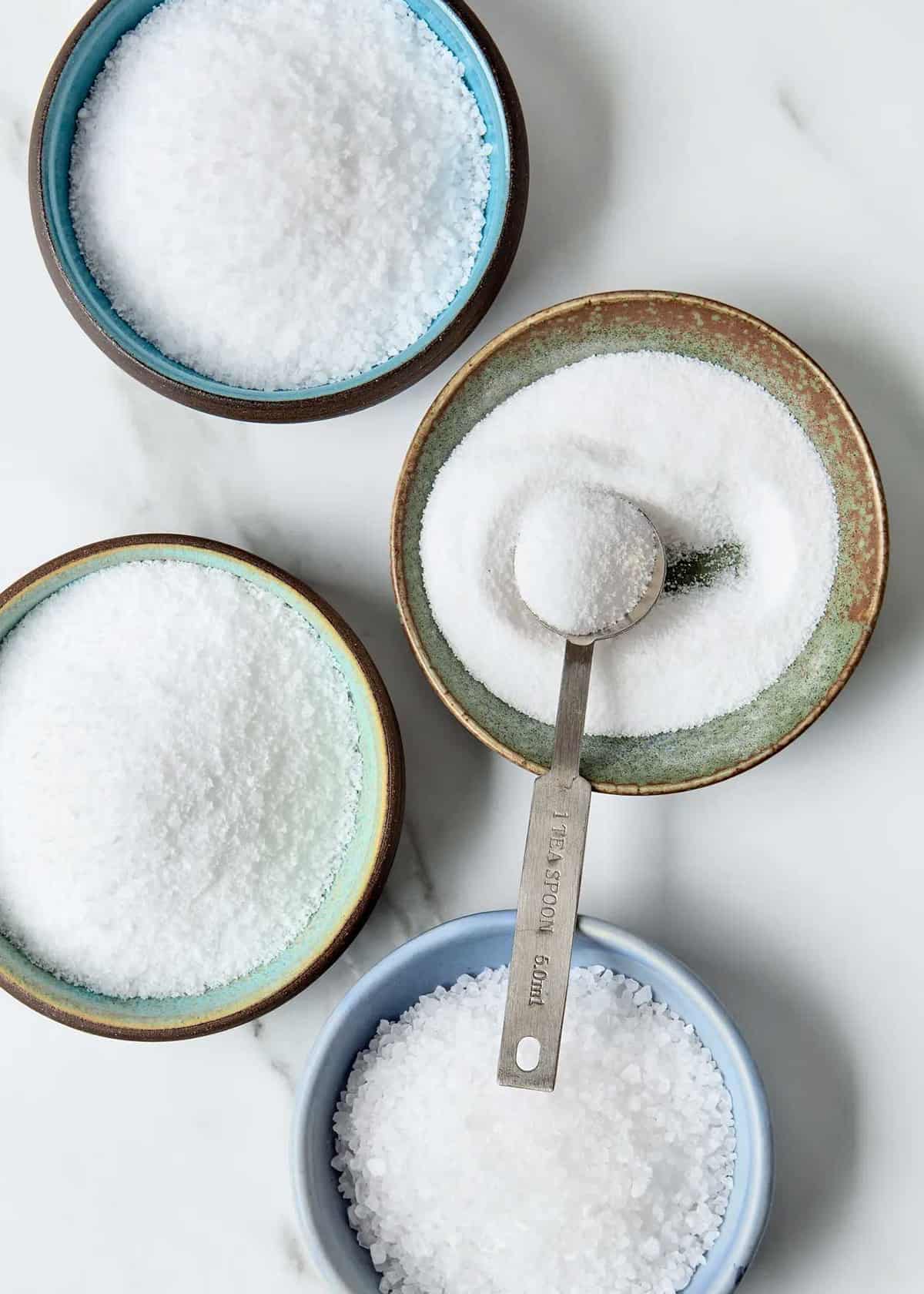
Photo Credit: Epicurious, Travis Rainy
The Difference Between Each and How to Use Them
Kosher Salt – it got its name from its traditional use in the koshering process of meat, which involves drawing out blood or preserving. Unlike table salt, kosher salt doesn’t have iodine additives and contains larger, irregularly shaped crystals. These flakes make it easier to pinch, facilitating a more controlled and even seasoning of dishes. Hence chefs worldwide prefer it.
It is well-suited for a variety of culinary applications, from seasoning meat to enhancing the flavor of vegetables. Its texture and lack of additives make it a favorite among chefs for its ability to add a burst of flavor and the right amount of salinity to each bite.
Table Salt – often known as refined salt, is the most common salt found in everyday households. It’s obtained through a process that involves mining salt deposits and then refining the salt to remove impurities. This results in fine, evenly-sized crystals that are densely packed, making it a salt with a high level of salinity per volume.
Its uniformity and fine texture make it an ideal choice for baking, where precision in measurements is crucial. Additionally, table salt often contains additives like iodine, which is essential for preventing iodine deficiency.
Sea Salt – as the name implies, is derived from the evaporation of seawater. Its production methods can vary, resulting in a wide range of textures and flavors. Sea salt generally has larger crystals than table salt and offers a more natural, uneven appearance. The minerals present in the water give sea salt a distinct flavor profile that can enhance the overall taste of dishes.
It’s often used as a finishing touch, sprinkled on top of dishes just before serving, to add a delightful crunch and a burst of briny flavor. The delicate crunch and unique flavors make sea salt a favorite for enhancing the final presentation of a dish.
Pickling Salt – Pickling salt is also known as preserving salt and canning salt. It’s a fine-grain, edible, pure salt that is typically use to make pickles or preserve canned ingredients. It has no added iodine, anti-caking agents, or trace minerals that potentially-discolor the end product like iodized salt (regular table salt) does.
Why is it preferred for Canning? It has no additives, leaving a clear pickle brine that won’t discolor your ingredients. It also dissolves quickly in pickling liquid and infuses the vinegar.
Morton and Diamond Crystal are two popular brands that produce kosher salt, and while they may seem similar at first glance, there are notable differences between Morton kosher salt and Diamond Crystal kosher salt that can impact their usage and the final taste of your dishes.
Morton: The coarser texture of Morton kosher salt makes it suitable for applications where you want to feel the texture of the salt, such as when seasoning meat before cooking. Its larger crystals also make it easier to pinch and sprinkle, allowing for more precise control over the amount of salt being added. Morton kosher salt can work well in rubs, brines, and dishes where you want a pronounced crunch of salt.
Diamond Crystal: The fine flakes of Diamond Crystal kosher salt dissolve quickly, making it ideal for applications like brining and recipes where the salt needs to distribute evenly throughout the dish. Its lightness and rapid dissolution also make it well-suited for seasoning foods after they are cooked, such as salads or freshly sliced vegetables. Diamond Crystal kosher salt is often favored for its ability to provide a delicate, controlled seasoning without overwhelming the dish.
Photo Credit: America’s Test Kitchen
When it comes to substituting table salt for kosher salt (or vice versa) in recipes, it’s essential to consider the difference in crystal size. Table salt is denser due to its fine grains, while kosher salt’s larger, flakier structure results in less salt per unit of volume.
As a rule of thumb, you can also follow a simple conversion: 1 part Table Salt = 1½ parts Morton Kosher Salt = 2 parts Diamond Crystal Kosher Salt.
However, the best practice is to taste and adjust as you go, as personal preferences for saltiness can vary.
Chefs worldwide have a penchant for kosher salt, and this preference is rooted in both practicality and flavor. The larger, more irregular crystals of kosher salt make it easier to control the amount of salt being added to a dish, resulting in a more precise seasoning process. The act of pinching the salt between fingers provides a tactile connection to the seasoning process, allowing chefs to feel the amount they are adding, much like an artist adding brushstrokes to a canvas.
Moreover, the lack of additives like iodine in kosher salt ensures that the salt’s pure flavor shines through. Chefs appreciate its clean, briny taste, which enhances the natural flavors of the ingredients without introducing any unwanted chemical undertones. The texture of kosher salt also contributes to its appeal – its light flakes disperse evenly over food, ensuring a consistent flavor profile in every bite.
While both have no added iodine, anticaking agents, or trace minerals like you would normally find in iodized salt there are some differences for use.
Fine-grain pickling salt is the best choice when pickling becuase the result is an uncloudy brine. On the other hand, kosher salt is ideal for drawing the moisture out of meat and flavoring pasta water due to its large crystals.

